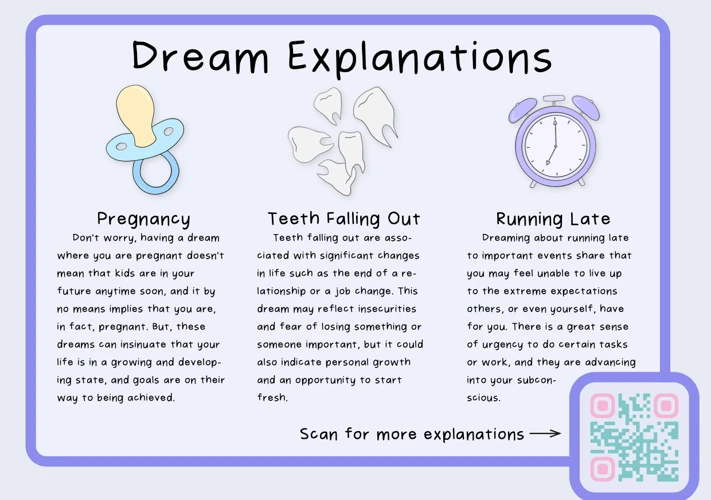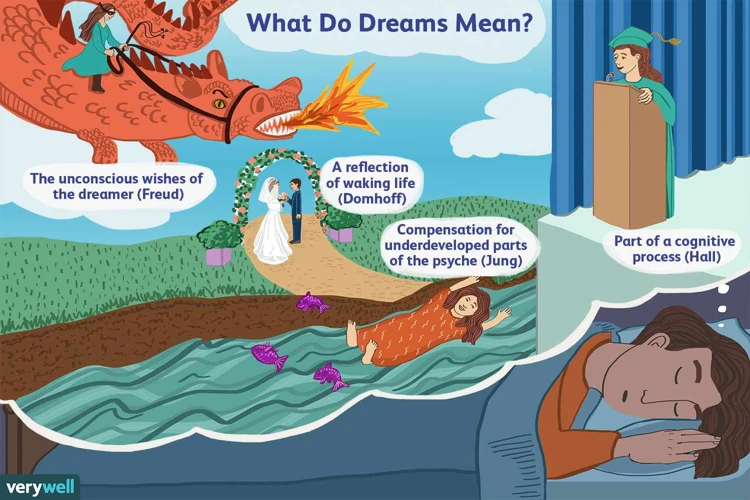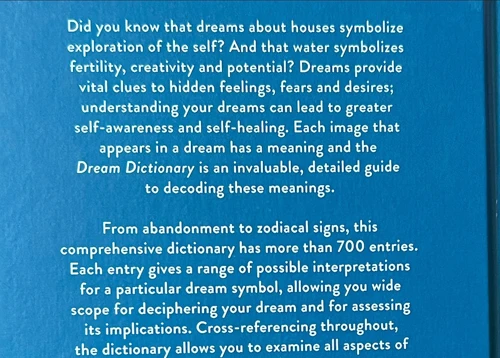If you’ve ever found yourself waking up in a cold sweat or with a profound sense of happiness after a dream, you know how powerful emotions can be in the realm of dreams. But what do these feelings mean? Are they random bursts of emotion or are they trying to convey a deeper message? In this comprehensive dream dictionary, we will delve into the world of emotions in dreams and decipher their hidden meanings. From the common feelings of fear and anxiety to the more specific emotions of confusion and bewilderment, we will uncover the secrets behind these emotional experiences. So, get ready to unlock the mysteries of your dreams and discover the true significance of the feelings that accompany them.
Common Feelings in Dreams

When it comes to dreams, certain feelings tend to recur more often than others, providing valuable insights into our subconscious minds. One of the most common feelings experienced in dreams is fear and anxiety. Whether it’s being chased by a mysterious figure or facing a daunting situation, dreams often tap into our deepest fears, allowing us to confront and overcome them. On the other end of the emotional spectrum, dreams can also evoke love and joy, where we may experience feelings of deep affection towards someone or overwhelming happiness in a dream scenario. Additionally, dreams can be a platform for expressing anger and frustration, as we may find ourselves in situations that elicit these intense emotions. Similarly, dreams can evoke sadness and grief, allowing us to process and heal from emotional pain.
Fear and Anxiety
- Nightmares: Fear and anxiety are often associated with nightmares, where we find ourselves in terrifying situations or being pursued by something ominous. These dreams can serve as a reflection of our fears and anxieties in waking life, allowing us to confront and process them.
- Symbolic Meaning: Feelings of fear and anxiety in dreams may also be symbolic of underlying concerns or unresolved issues. Pay attention to the specific elements and symbols in the dream, as they can provide valuable insights into the source of these emotions.
- Psychological Interpretation: From a psychological perspective, dreams of fear and anxiety may arise from repressed emotions or subconscious worries. Exploring these emotions in therapy or journaling can help unravel their meaning and address any underlying issues they may represent.
- Overcoming Challenges: Interestingly, dreams of fear and anxiety can sometimes be an indication of personal growth and resilience. Facing and conquering the fears presented in dreams can translate to increased confidence and strength in real-life situations.
Love and Joy
In dreams, the feelings of love and joy can provide a glimpse into our deepest desires and emotional fulfillment. Experiencing a sense of love and joy in a dream can signify a harmonious and contented state of being. It may represent the presence of strong affection towards someone or a deep appreciation for the beauty and positivity in life. Dreams of love and joy can also be symbolic of inner happiness and a reflection of our emotional well-being. These dreams can leave us with a warm and uplifting sensation, reminding us of the importance of nurturing love and finding joy in our waking lives.
Anger and Frustration
- Anger: In dreams, anger can manifest in different ways, ranging from simmering frustration to explosive rage. It may reflect unresolved conflicts or feelings of powerlessness in waking life. Exploring the source of anger in a dream can help uncover underlying issues that need to be addressed.
- Frustration: Dreaming of frustration often occurs when we are facing obstacles or challenges in our waking life. It may signify a sense of being stuck or unable to reach our goals. Identifying the cause of frustration in a dream can provide clues on how to overcome similar hurdles in reality.
Sadness and Grief
When experiencing sadness and grief in dreams, it can be a reflection of unresolved emotions or a need for healing in our waking lives. These feelings may arise from past traumas, losses, or disappointments that we haven’t fully processed. Dreaming about sadness and grief can provide an opportunity to confront and release these emotions, allowing us to find closure and move forward. It’s essential to pay attention to the specific details and symbols in the dream to gain a deeper understanding of the underlying message. If you’re interested in exploring the interpretation of other emotions in dreams, you can check out our guide on dreaming of a bruised face.
Specific Feelings in Dreams

While common feelings in dreams provide a glimpse into our general emotional landscape, specific feelings in dreams can offer deeper insights into our subconscious thoughts and desires. Confusion and bewilderment is one such specific feeling that often manifests in dreams. It may reflect a sense of being lost or uncertain in waking life, or it could signify a need for clarity and direction. On the flip side, dreams can also spark feelings of excitement and anticipation. These dreams often involve thrilling adventures or upcoming events that fill us with a sense of eager anticipation. Additionally, dreams can bring about feelings of peace and serenity, where we may find ourselves in tranquil settings or engaged in calming activities. Finally, dreams can sometimes evoke embarrassment and shame, revealing underlying insecurities or feelings of guilt. Exploring these specific feelings in dreams can unlock valuable insights into our innermost thoughts and emotions, guiding us towards personal growth and self-discovery.
Confusion and bewilderment
- Confusion and bewilderment: Dreams that evoke a sense of confusion and bewilderment can often leave us feeling disoriented and perplexed. These dreams may involve complex or nonsensical situations, making it challenging to decipher their meaning. They might reflect uncertainties or challenges we face in our waking lives, symbolizing the need for clarity or direction. It’s important to pay attention to the specific details and symbols within these dreams, as they may hold clues to unraveling the confusion. Exploring personal associations and seeking guidance from dream experts can help shed light on the underlying message that these dreams convey.
Excitement and anticipation
Dreams have the power to transport us to thrilling and exhilarating scenarios, creating a sense of excitement and anticipation. In these dreams, we may find ourselves eagerly awaiting an upcoming event, such as a vacation or a job interview. The feeling of anticipation in these dreams can be palpable, as our minds simulate the emotions associated with the anticipated event. This type of dream can be a reflection of our desires and aspirations, highlighting our enthusiasm and readiness for new experiences. It can also serve as a source of motivation, inspiring us to pursue our goals with fervor and excitement. So, the next time you find yourself feeling an intense sense of anticipation in a dream, embrace it and let it fuel your passion for creating an incredible future.
Peace and Serenity
Peace and serenity in dreams often evoke a sense of calm and tranquility. When experiencing these feelings, it may indicate that you are seeking inner harmony and a peaceful state of mind. Dreams of peaceful landscapes, calm waters, or serene environments can symbolize a desire for relaxation and a need to find balance in your waking life. It could also be a reflection of contentment and emotional stability. Exploring the dream’s context and personal associations can provide further insight into the specific meaning of peace and serenity in your dreams.
Embarrassment and shame
Embarrassment and shame are common feelings that can arise in dreams and leave a lasting impact on our waking state. Dreaming of embarrassing situations, such as appearing in public without clothes or making a major social blunder, can evoke a sense of embarrassment and shame. These dreams may reflect insecurities or the fear of being judged by others. It’s essential to consider the context and details of the dream to gain a deeper understanding of the underlying message. Exploring the symbolism and personal associations connected to these emotions can provide valuable insights into our subconscious thoughts and help us address any hidden insecurities or fears we may have.
Interpreting Feelings in Dreams
Interpreting the feelings experienced in dreams can provide valuable insights into our subconscious thoughts and emotions. While the meaning of a specific feeling in a dream can vary for each individual, there are several key factors to consider. First, it’s important to analyze the context and situations surrounding the dream. The events and people involved can provide clues to the underlying
Subscribe to Our Newsletter
Sign up to receive the latest news and updates.
Context and Situations
- The context and situations in which a dream occurs play a crucial role in decoding the meaning of the feelings experienced. Sex dream about a friend, for example, may evoke a range of emotions such as confusion, excitement, or even guilt depending on the circumstances.
- Interpreting the context involves considering the surroundings, people involved, and the overall atmosphere within the dream. It is essential to note any significant details or events that may provide clues to the underlying emotions and their implications.
- For example, dreaming about planting flowers in a dream may represent growth, renewal, and a sense of nurturing. However, if the dream is accompanied by a sense of sadness or loss, it may symbolize the end of a relationship or the passing of a loved one.
- By examining the context and situations in dreams, a comprehensive understanding of the feelings experienced can be achieved, enabling individuals to gain insights into their own emotions and thoughts.
Personal Associations
Personal associations play a significant role in understanding the meaning of emotions in dreams. Each individual has their own unique experiences, memories, and beliefs, which can heavily influence the emotions they experience in their dreams. For example, a dream about planting flowers may evoke feelings of joy and growth for someone with a positive association to gardening, while for another person with a deep spiritual connection, it may symbolize a divine message or a sense of renewal. Understanding these personal associations can provide valuable insights into the specific meaning behind the emotional experiences in dreams.
Symbolism and Metaphor
- Symbolism: Dreams often use symbolism to convey meaning. Objects, actions, or even people in our dreams may represent something entirely different in our waking life. For example, dreaming about planting flowers could symbolize growth, new beginnings, or even fertility. By analyzing the symbols present in our dreams, we can uncover hidden messages or insights.
- Metaphor: Dreams also frequently utilize metaphorical language to communicate emotions and experiences. Metaphors can add depth and layers of meaning to our dreams, allowing us to tap into our subconscious thoughts and feelings. For instance, dreaming about a bruised face could metaphorically represent a feeling of vulnerability or being emotionally hurt. Deciphering the metaphors in our dreams can provide valuable clues to what is happening in our inner world and how it may relate to our waking life experiences.
Conclusion
In conclusion, exploring and deciphering the meaning of feelings in dreams can provide valuable insights into our subconscious mind. From the common feelings of fear and anxiety to the more specific emotions of confusion and anticipation, our dreams act as a portal to our innermost thoughts and emotions. By paying attention to the context, personal associations, and symbolism within our dreams, we can gain a deeper understanding of ourselves and the messages our subconscious is trying to convey. So, the next time you wake up with a strong feeling from a dream, take the time to decode its meaning and uncover the hidden treasures of your own mind.
Frequently Asked Questions
Why do we experience fear and anxiety in dreams?
Fear and anxiety in dreams often stem from unresolved fears or anxieties in our waking lives. Dreams provide a space for us to process and confront these emotions, allowing us to gain a better understanding of ourselves and find ways to overcome our fears.
Can dreams really evoke feelings of love and joy?
Absolutely! Dreams have the power to evoke a wide range of emotions, including feelings of love and joy. These dream experiences can be a reflection of our deepest desires, aspirations, and connections with others.
Why do we feel anger and frustration in our dreams?
Anger and frustration in dreams can arise from various sources, such as unresolved conflicts, unexpressed emotions, or challenges we face in our daily lives. Dreams provide a safe space for us to explore and process these intense feelings.
What can dreams of sadness and grief indicate?
Dreams of sadness and grief often symbolize emotional healing and the process of letting go. They can be a way for our subconscious mind to work through unresolved emotions and facilitate our journey towards acceptance and closure.
Why do we feel confusion and bewilderment in dreams?
Confusion and bewilderment in dreams can reflect situations in our waking lives where we feel uncertain or overwhelmed. These dream experiences allow us to explore and gain insights into complex situations, helping us find clarity and direction.
What does it mean to feel excitement and anticipation in dreams?
Feeling excitement and anticipation in dreams often signifies our eagerness for new beginnings, opportunities, or upcoming events in our lives. These dreams may serve as a source of motivation and inspiration, encouraging us to pursue our goals.
Why do we experience peace and serenity in our dreams?
Dreams of peace and serenity can signify a state of calmness and contentment within ourselves. These dreams may arise when we are experiencing a sense of inner harmony or when we need a break from the stresses of daily life.
What can dreams of embarrassment and shame reveal?
Dreams of embarrassment and shame often reflect our deepest insecurities and fears of being judged by others. These dreams provide an opportunity for us to address and process these emotions, allowing us to work towards self-acceptance and building self-confidence.
How can we interpret the feelings in our dreams?
Interpreting the feelings in our dreams requires considering various factors, such as the context and situations within the dream, our personal associations with specific emotions, and the symbolism and metaphorical meanings that may be at play. Working with a dream dictionary or seeking guidance from a dream expert can provide further insights.
Why is it important to pay attention to the feelings in our dreams?
Pay attention to the feelings in our dreams is essential because they offer valuable information about our emotional state, subconscious desires, and unresolved issues. By understanding and decoding these feelings, we can gain a deeper understanding of ourselves and work towards personal growth and self-improvement.










